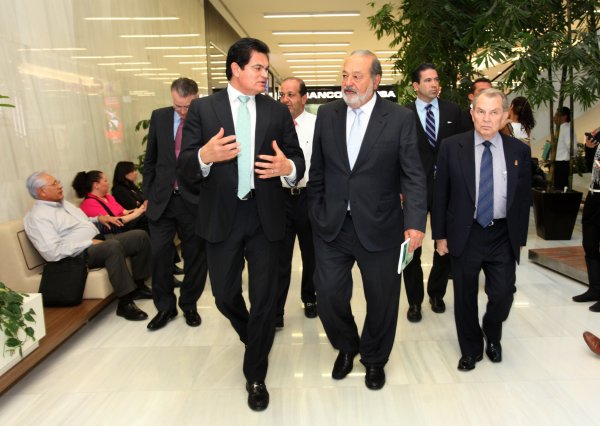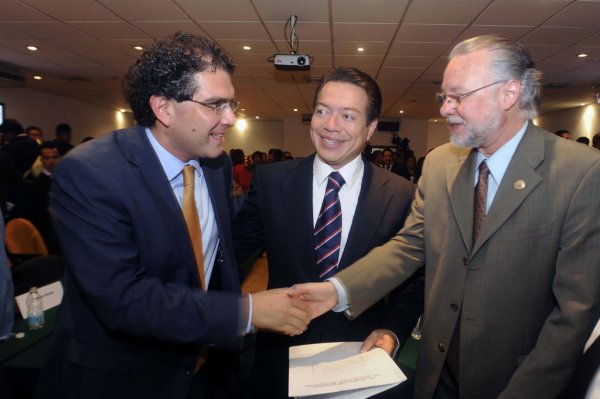Business Culture: The Business Experience
Business Style
With the US and Canada to the north, and the rest of Latin America to the south, Mexico is a popular international business destination. This Latin American country features an interesting business culture, as it is warm and friendly, yet hierarchical and formal at the same time. In Mexico, social stratifications are well defined, and most Mexicans are very class-conscious. This affects Mexican business culture, as foreign visitors will be judged on their own social and economic statuses, which Mexicans will gauge by the visitor's choice of hotel, mode of transportation, and appearance.
Family and friends are the most important things to most Mexicans, as they are at the center of the social structure. This value is also found in the business culture, and Mexicans must know a person before doing business with him or her. In Mexico, the only way to know a person is to also know his or her family, so visitors should not be surprised if they meet their counterparts' family members during business entertaining events.
In Mexico, business dealings will proceed more slowly than some visitors are accustomed to. Mexicans say that "People in the US live to work, but Mexicans work to live." This is often very accurate, as Mexicans work hard, but take the time to have social and private lives as well. Foreign visitors should not try to change the speed of business in Mexico by trying to rush discussions or using too sharp a tone of voice. Refusing to adapt to Mexican views of time may result in destroying the professional relationship.
Relationship Building
To say that relationships are an important part of business in Mexico is quite the understatement. In fact, business relationships are the key to success, and this is true for both Mexican citizens and foreign businesspeople. Visitors must choose an intermediary who will introduce them to their Mexican contacts, as well as help them build the trust necessary to do business there. This integral connection must be chosen wisely, as a low-level contact person can hinder your professional goals in Mexico, due to the status-conscious attitude. Many Mexican professionals will not take you seriously if your contact is not high up in the hierarchal ranks.
The initial meetings between foreign visitors and Mexicans will usually be formal affairs that include welcoming speeches and long introductions. Many Mexican executives may ask a number of personal questions about the visitor, such as his or her family, travel schedule, accommodations, and even political beliefs. This is not done to be rude or invasive—it is done so that the executives may assess the visitor's character to learn if they think he or she is long-term business relationship material. Visitors should answer questions diplomatically and ask their own questions as well.
Etiquette
Mexicans greet business visitors with firm handshakes and direct eye contact. Handshakes are typically accompanied by a formal, warm greeting and introduction. Friends and close acquaintances will often exchange a kiss on the right cheek or hug each other. Visitors should greet each person individually, upon both arrival and departure. The senior person on the visiting team should always greet the most senior or eldest person on the Mexican team when meeting counterparts for the first time. Titles are important in Mexico, and contacts should be addressed by their professional or honorific titles. For example, an architect would be called Arquitecto, while an attorney would be called Abogado. If someone doesn't have a title, he or she should be addressed as Señor (Mr.) or Señora (Mrs.), until you are invited to move to a first-name basis.
In Mexico, business cards are usually exchanged during introductions, and visitors' business cards should be printed in Spanish on one side. Always present the card to your Mexican counterpart with the Spanish side up when exchanging cards, and be sure to include your business title and any professional or honorific degrees on your business cards. You may notice that many Mexican business cards, especially those of government officials, will only have the person's name and title, but not his or her contact information. This is done so that he or she will not be used as an unauthorized business reference.
Physical contact in the Mexican workplace occurs frequently, and the personal space between others is closer than many visitors may be used to. Arriving thirty minutes after the stated time to an appointment is considered on time for locals, but visitors should always arrive at the stated time.
Article written for World Trade Press by Kerrie Main.
Copyright © 1993—2024 World Trade Press. All rights reserved.

 Mexico
Mexico 


